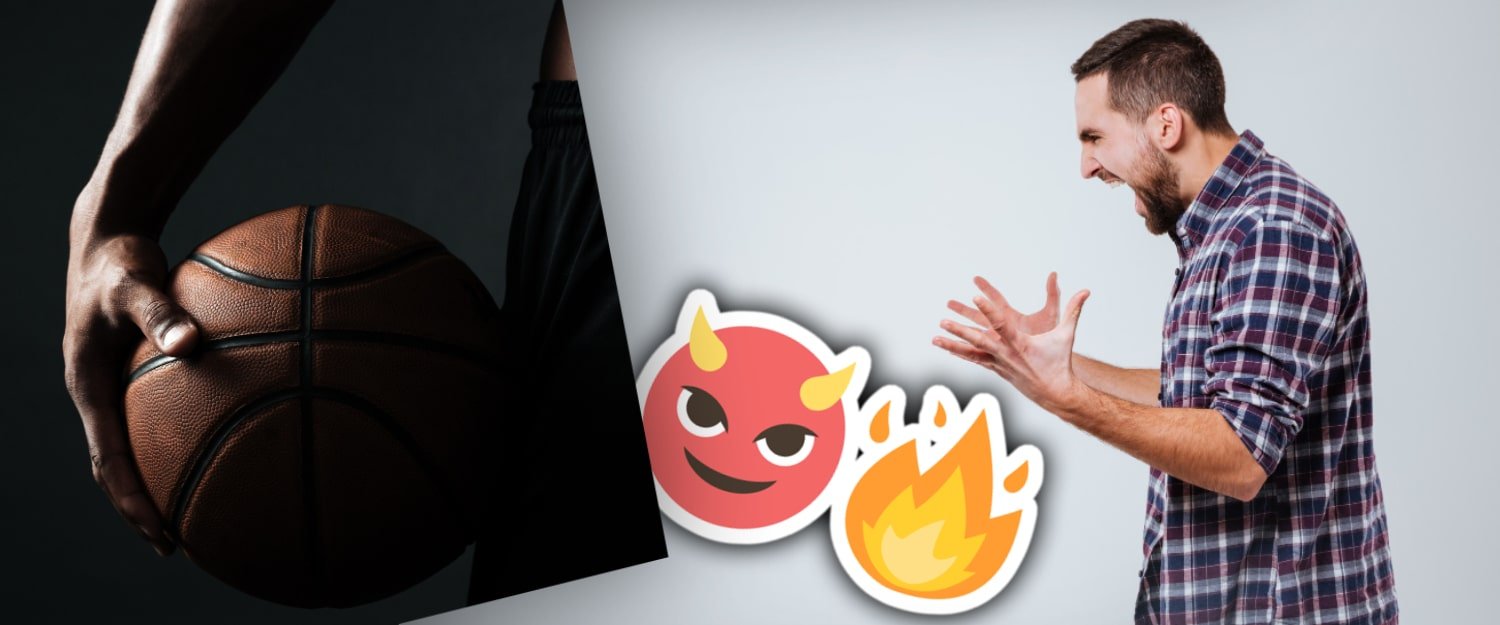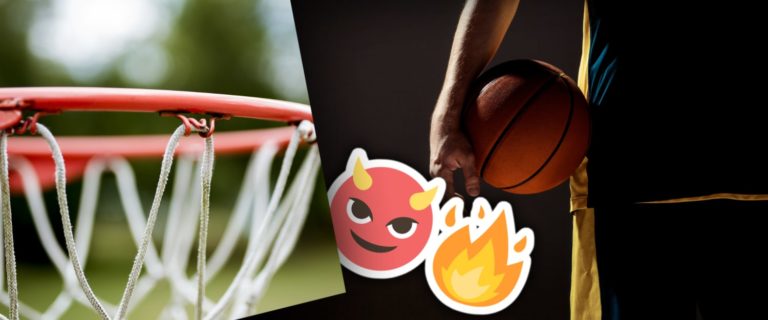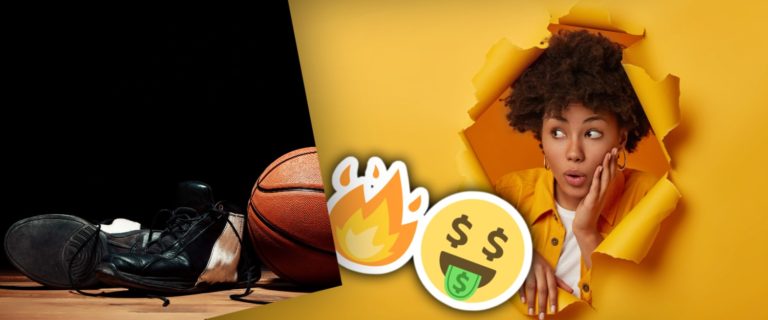How To Coach Hot-Headed Players In Basketball: Tips
It’s not always easy to coach a basketball team’s hot-headed players. When these players are agitated, they can be difficult to manage and may disrupt the flow of your game.
However, there is still hope! In this blog post, we will share coaching tips for hot-headed athletes that will help you work with them more effectively and achieve success together.
Traits of a Hot Head in Basketball
As previously stated, hotheads are extremely passionate and emotional. They are also naturally competitive and impulsive. If you want a fiery player on your team, look for those who will likely exhibit some of these traits:

They Love What They Do
If their eyes light up when talking about the sport or when practicing drills at practice, you have a hot-head athlete.
Their Passion is Often Contagious
Players with this personality can get others fired up for practices or games.
Lack of Patience
When things don’t go as planned from the start, hot-headed players may become quickly frustrated without considering how to best solve the problem.
Prone to Conflict
When faced with adversity or when they believe their teammates are not giving their all, these athletes can become irritable.
Tips on Coaching Hot-Headed Players in Basketball
When coaching hot-head players on a team, everyone must understand what is expected of them and how they must behave during gameplay.
If necessary, you may want to consider having your hothead sit out until the player calms down so that nothing disrupts the flow of play for themselves or other team members.
If you have parents who are upset about the situation, explain why you took these precautions with your athlete and how they will benefit the team in the long run.

Below are some tips for dealing with hot-headed players:
Define Your Expectations
When working with a hot-head athlete, you should do this from the start. Make sure they understand what is and isn’t tolerated on and off the court.
Keep Communication Open
Tell them they can come to you with any questions or concerns they have during practices or games. Hotheads frequently feel the need to bottle things up, so it’s critical to foster an environment in which athletes feel comfortable opening up.
Make Sure Rules are Clear and Fair
Don’t make rule changes in the middle of a game, and don’t be too strict with hot head players. They need to know that there are clear boundaries and rules in place so they can feel safe knowing what is expected of them.
Use Positive Reinforcement
Instead of focusing on their mistakes, reward hot-headed athletes when they do something right. All these players sometimes need is a little bit of encouragement and support from others to get back into the right mindset for playing well during games!
When Dealing with Conflict or Poor Sportsmanship
Allowing hot-headed athletes too much leeway in these situations is critical because their behavior can cause problems for the entire team.
However, if they believe something unfair occurred during the game, let them know how they could have handled it better and then proceed from there.
During Practice
Hothead players may struggle when practicing drills without a specific goal in mind—they just want things done quickly so they can be ready for games! As a result, hotheads should have a practice strategy in place.
In the Case of Smaller Problems
Try to address hot-headed players’ issues as soon as they arise to prevent conflict from escalating and destroying everyone’s motivation before games or practices.
Bonus Tips for Parents
Encourage your fiery athlete to think rationally when faced with adversity during games and practice sessions.
Remind them not to direct their rage at others but rather at themselves by considering how they can improve their future performance.
Are You the Hothead on Your Basketball Team?
Remember that hot-headed players are frequently hard on themselves and can be hotheads off the court as well. If this describes you, take some time away from basketball, so you don’t become frustrated when dealing with new challenges or criticisms during practices or games.
Also, communicate with your coach about any concerns you have so that they can assist you in resolving them.
Infamous Hotheads in the NBA

Rasheed Wallace
Rasheed Wallace is one of the NBA’s most infamous jerks. On and off the court, he was known for his temper tantrums, which frequently led to clashes with coaches, referees, and other players.
Wallace’s hot temper resulted in him being ejected from games 41 times in one season! He was even given a seven-game suspension in 2004 for threatening a referee.
Despite this, Wallace was able to contribute significantly to some championship teams.
Kendrick Perkins
Kendrick Perkins is another NBA player known to have a fiery temper. His rants frequently resulted in technical fouls and ejections from games.
Perkins became so enraged that he punched a hole in the wall outside the locker room! Perkins has stated that he is working on controlling his anger, but it is still an issue at times.
DeMarcus Cousins
DeMarcus Cousins is one of the NBA’s most talented players, but he’s also known for his fiery temper. He has been ejected from games multiple times and has even gotten into physical fights with other players.
Cousins stated in a 2017 interview that he is working on controlling his anger and focusing more on basketball. However, it is still a source of problems at times. This is especially true when things on the court aren’t going well for him.
Metta World Peace
Metta World Peace, formerly Ron Artest, is another NBA player known for his fiery temper.
He’s been thrown out of games on multiple occasions and was even involved in a brawl between players and fans at the Palace of Auburn Hills.
Kevin Garnett
Kevin Garnett is another NBA player with a fiery temper. He has been known to engage in heated debates. He was even fined $25,000 in 2009 for making an obscene gesture toward a fan.
Despite his volatile temper, Garnett won an MVP award and led the Boston Celtics to a championship in 2008.
Rajon Rondo
Another NBA player with a volatile temper is Rajon Rondo. He was ejected from games on multiple occasions and was known to throw temper tantrums in the locker room after tough losses or poor performances.
Despite this, Rondo became one of the best players during his time with the Boston Celtics, earning All-Star honors four times.
Dwyane Wade
Dwyane Wade was ejected from games on multiple occasions and once got into an argument with police after being pulled over for speeding in 2006.
Wade had some temper tantrums while playing basketball at Marquette University, but he eventually became one of the best players to ever play for the Miami Heat, winning three championships during his career.
Kobe Bryant
Kobe Bryant is a misunderstood hothead whose rage is frequently misinterpreted as competitiveness. He was known to be a hot-headed player who would occasionally lash out at coaches, referees, and other players.
Despite his volatile temper, Kobe Bryant is regarded as one of the best players in NBA history. With the Los Angeles Lakers, he won five championships and was named Finals MVP twice.
Quick Summary and tips for coaching short-tempered athletes
Coaching irritable athletes can be difficult since it calls for a careful balance between controlling the athlete’s emotions and inspiring them to provide their best effort. Here are some tactics coaches can employ to successfully work with athletes that have quick tempers:
- Build a positive relationship: Establish a positive relationship with the athlete. This is an important first step in helping the athlete manage their emotions. The athlete’s coach should take the time to get to know them personally, identify their emotional triggers, and demonstrate empathy for them. By developing a good rapport with their athletes, coaches may foster a secure and encouraging environment where athletes can express their feelings without worrying about being judged or criticized.
- Teach emotional regulation skills: Coaches can also teach athletes with a short temper how to regulate their emotions. This can include teaching them techniques such as deep breathing, visualization, and mindfulness meditation. These skills can help athletes learn to manage their emotions and respond more effectively to stressors.
- Develop a pre-game routine: Developing a pre-game routine can help athletes with a short temper stay focused and calm during competitions. This routine can include physical warm-ups, mental preparation techniques, and visualization exercises. By developing a consistent routine, athletes can feel more in control of their emotions and better prepared to perform at their best.
- Provide clear expectations and consequences: Coaches should provide clear expectations for behavior and consequences for inappropriate behavior. This can help athletes understand what is expected of them and the consequences of their actions. By setting clear expectations and consequences, coaches can help athletes understand the impact of their behavior on the team and the consequences of letting their emotions get the best of them.
- Focus on the process, not just the outcome: Coaches should focus on the process of improvement, not just the outcome of the competition. This can help athletes with a short temper stay focused on the present moment and the task at hand, rather than getting caught up in their emotions. By focusing on the process, coaches can also help athletes develop a growth mindset and understand that mistakes and setbacks are a natural part of the learning process.
- Use positive reinforcement: Finally, coaches can use positive reinforcement to encourage and motivate athletes with a short temper. This can include providing specific feedback on what the athlete is doing well, celebrating successes, and recognizing improvements. Positive reinforcement can help athletes feel valued and motivated, which can help them manage their emotions more effectively.
Coaching athletes with a short temper requires a multifaceted approach that includes building a positive relationship, teaching emotional regulation skills, developing a pre-game routine, providing clear expectations and consequences, focusing on the process, and using positive reinforcement. By using these strategies, coaches can help athletes with a short temper manage their emotions and perform at their best.
Conclusion
Finally, hothead players can pose a difficult challenge for coaches. However, by understanding these players’ characteristics and knowing how to best deal with them, you can assist them in overcoming their anger issues and becoming better basketball players.
They can also be very useful players if they can use their hotheadedness constructively on the court.
We hope you have found this blog post helpful. Thank you for reading!








